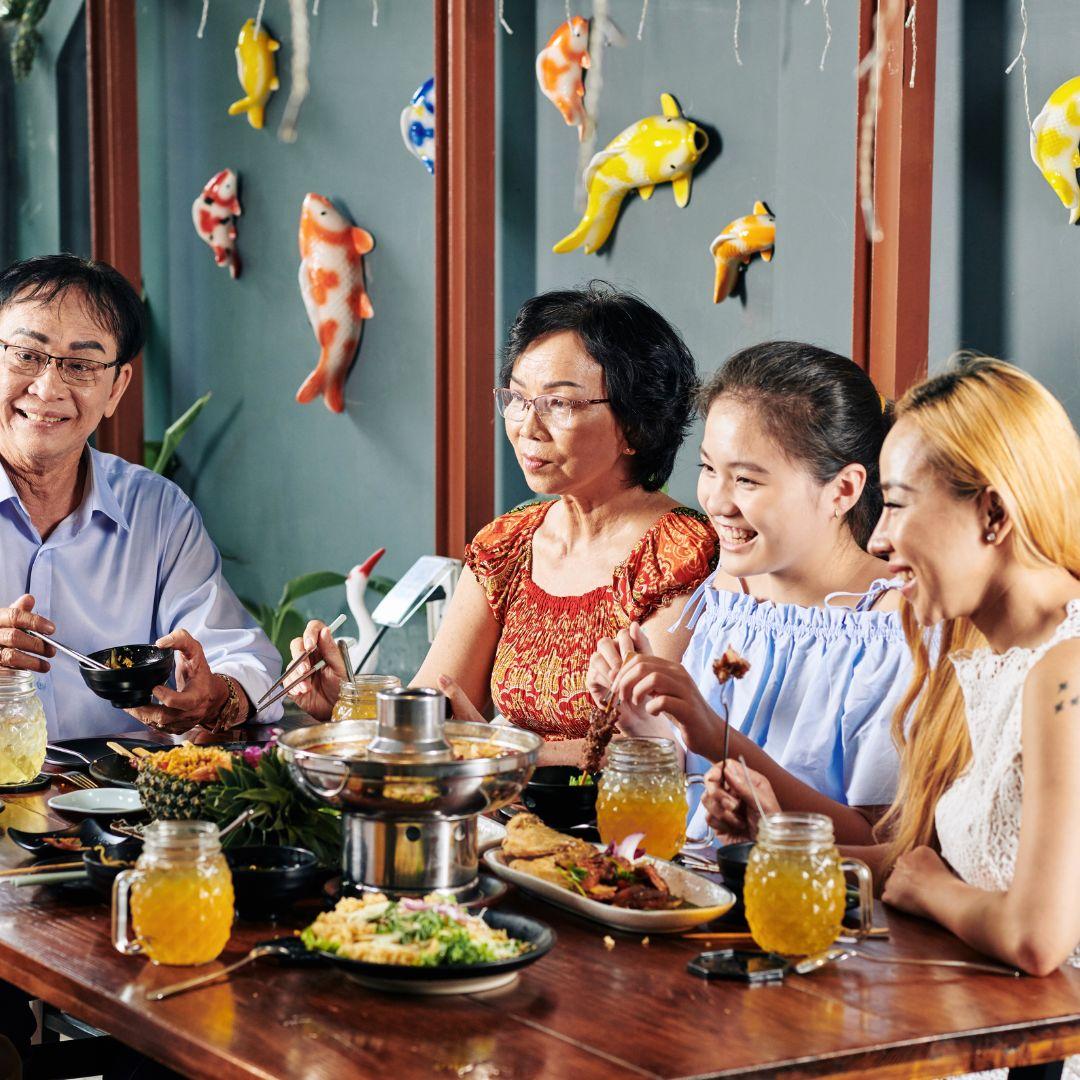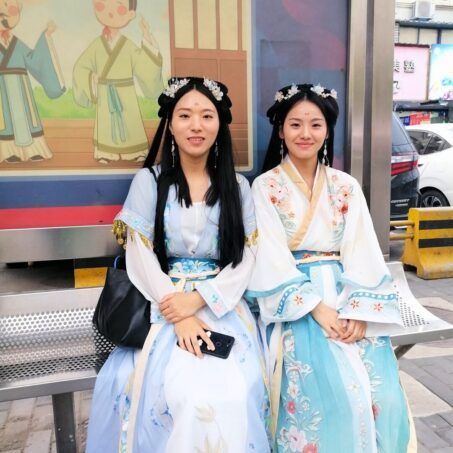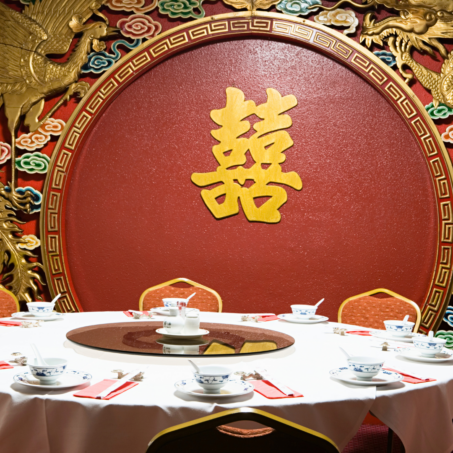Can you handle a fifth call to 干杯 gānbēi (‘dry cup’) or know how to say ‘thank you’ for tea without words?
In our previous interview article, our half Malaysian-Chinese copywriter, Natasha, asked her Mainland-Chinese husband, Jie, about Chinese traditions around marriage and family. This time, we’re taking a look at traditions centring food and drink, with Natasha and Jie having just returned from a family reunion trip to China.
—
N: The horror followed by delight at your family accidentally deep-frying the expensive fuet (Spanish dry-cured sausage eaten raw) we brought them was one of the funniest things ever. Who knew it would turn out so good? I know we brought gifts to the dinner party because to us it’s a nice thing to do, but is it also a common thing to do in general?
J: Usually people don’t bring anything to family dinner parties, at least not in my village – it’s more casual and nobody’s expected to bring anything. People do sometimes bring fruit. You normally wouldn’t bring anything to a dinner party held at a restaurant. If it’s a friend’s dinner party, it’s common to bring anything from food and drink to plants, but nothing extravagant.
N: It was fun seeing everyone clinking glasses of Chinese baijiu and the Scottish whisky we brought too. I think many people are taught that 干杯 gānbēi means ‘cheers’, but it’s actually a signal to drink your whole drink, like ‘bottoms up’. Do people still say it?
J: People do still say it sometimes, and it does mean drinking your glass dry, but you don’t have to – nobody will force you! If you want to say ‘cheers’ instead of ‘bottoms up’, you usually just raise your glass to someone you want to take a small drink with and say a small toast like ‘we welcome you back to China’. Then you and the person you toast take a sip. But you can still drink your whole glass if you like, there’s no strict rule.
N: I hear you can also say 随意 ‘suíyì’, meaning ‘drink as you please’. Speaking of drinks, everyone always seems to pour drinks for others before themselves.
J: Yes, it’s just common courtesy. You’re taught it as you grow up as something polite to do.
N: I heard that it’s customary to thank the pourer of your drink by tapping two fingers on the table instead of saying ‘thank you’ out loud. It comes from the story of an emperor going undercover as a peasant and pouring his servant tea to appear less suspicious – and because the servant didn’t want to blow the emperor’s cover, he tapped the table as a subtle sign of respect and deference. Is this a thing any more?
J: Not really, no. You can still do it, people know what you’re doing, but it’s not really a collective habit any more.
N: When it comes to mealtimes, there are always many plates of different dishes that everyone shares. It’s different to the West where we’re just given one plate per person with a complete meal on each plate. I prefer the Chinese way – you get to try more! What do you reckon the idea behind this way of eating is?
J: Everyone gets to choose exactly what they want and how much they want without being rude, the Chinese way. There’s less waste, rather than feeling like you have to finish everything on your plate. This way of eating also gives a better sense of community and closeness, sharing with everyone.
N: I’ve heard there are specific rules about chopsticks etiquette. Can you give some examples of best (or rather, worst) practices?
J: A big no-no is sticking your chopsticks straight up in a rice bowl. In the past, it was done during Chinese New Year to invite ancestor’s spirits to join the family meal. It’s also done at funerals. You’re not supposed to do it casually, or you might attract bad spirits that weren’t there in the first place. And then there are things you don’t do out of politeness, for example not pointing at people with them, and of course not using them to pick your teeth. And using communal chopsticks to take food from dishes for hygiene – but sometimes within a family we just use our own chopsticks.
N: I guess the last ones are true with Western cutlery, too. It’d feel a bit bizarre and threatening to have someone aggressively pointing a fork at you while talking.
J: Exactly.
—
Want to learn more about Chinese traditions? Check out our homestay courses where you can learn Chinese Mandarin language and culture while staying in China and Taiwan here.





